How Belfast Rappers Kneecap Made a Blast of a Music Biopic by Playing Themselves — and Championing the Irish Language
Co-starring Michael Fassbender and taking cues from 'Trainspotting', this lively Sundance award-winner features the hip-hop trio in the roles they were born to play.
There's much that's wild and unlikely about Kneecap's story — the band, that is, but plenty of it fuels the movie of the same name, too. When Naoise Ó Cairealláin, aka the Irish-language trio's Móglaí Bap, was christened, the British Army thought that the ceremony was an IRA meeting, even bringing in a helicopter. When the Belfast group formed decades later, Móglaí Bap and Liam Óg Ó Hannaidh, aka Mo Chara, found their third member in then-schoolteacher Jj Ó Dochartaigh, who took the moniker DJ Próvaí and dons a balaclava in the colours of the Irish flag onstage. Their first single 'C.E.A.R.T.A' was banned from the radio. They've now turned the whole ride so far into a big-screen music biopic. In said flick, which premiered at the 2024 Sundance Film Festival, Móglaí Bap, Mo Chara and DJ Próvaí all play themselves.
It's true of Kneecap the band and Kneecap the film alike, of course: yes, their shared title springs from a form of violence well-known in the trio's parts during The Troubles. Leaning in in the name of subversion is one of the things that this threesome does best — and via their music and now their feature as well, they're passionate about reframing the way that the world thinks about their home city. Championing their mother tongue, and the sense of Northern Irish identity that it helps forge, is equally crucial. Roll all of that into a movie, then enlist Michael Fassbender (Next Goal Wins) and take some inspiration from Trainspotting, and the result is a blast of a picture — and one of the instant greats of its genre.
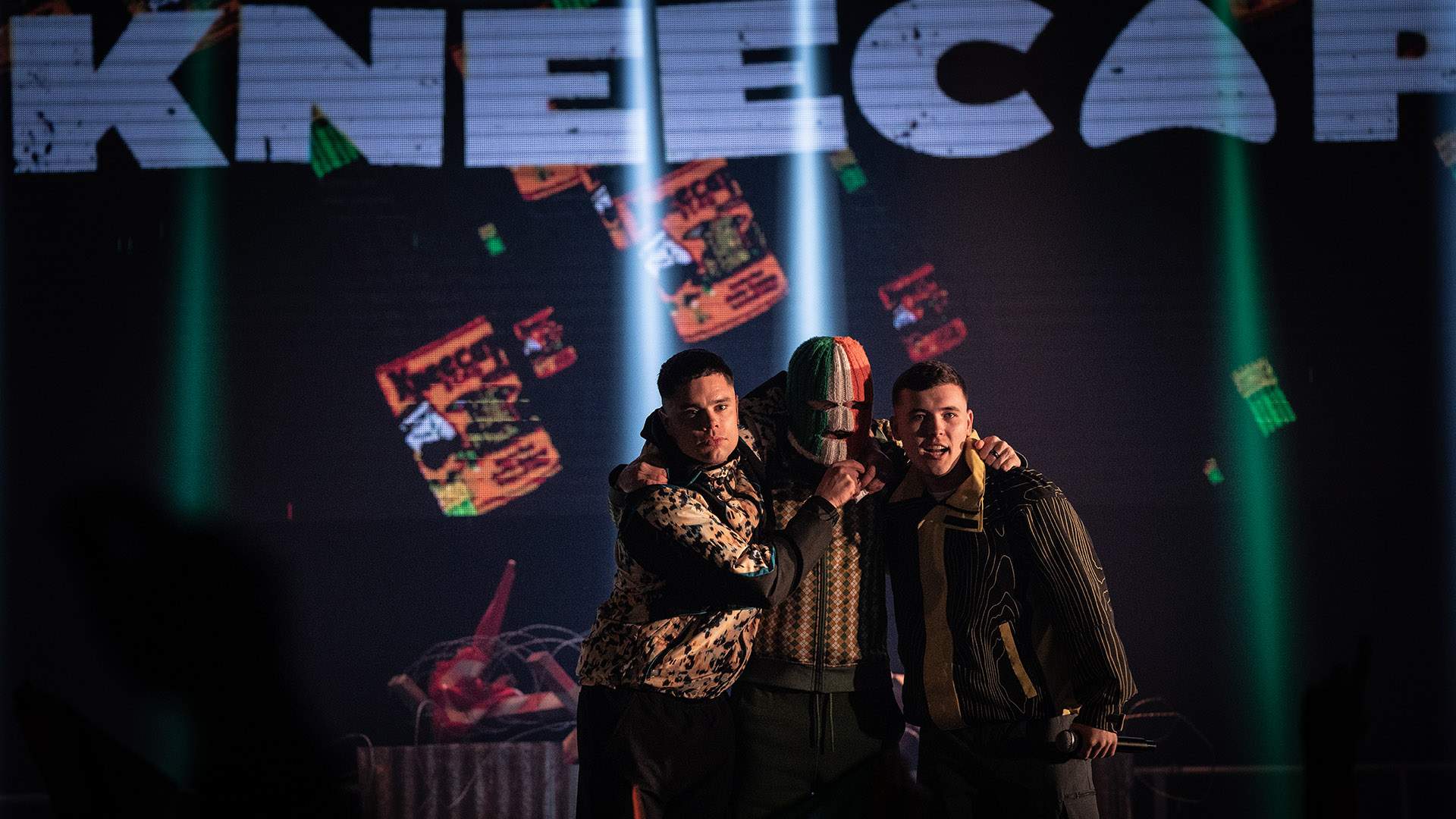
Naturally, all of the details mentioned above — the christening, which made the newspapers; DJ Próvaí's background, plus his school's reaction to his side gig; the disdain from the airwaves; the texture of Belfast beyond the well-documented conflicts; the fight for the Irish language — were always going to be key elements of any silver-screen take on Kneecap, even a purposefully playful one that isn't afraid of diverting from the facts if it suits (director Rich Peppiatt has claimed is about 70-percent true). As Móglaí Bap and Mo Chara tell Concrete Playground, starring in the movie themselves felt just as inevitable. They call their on-screen parts the roles they were meant to play, which is a cracking line, but the proof is in the vibe and vitality of the film.
The trio also co-wrote the feature with British filmmaker Peppiatt, who made their acquaintance by being persistent about trying to have a drink with them, and helmed their 'Guilty Conscience' music video. Ensuring that Kneecap reflected Móglaí Bap, Mo Chara and DJ Próvaí, their tunes, their personalities, their experience, the causes they're committed to and their view of their hometown was obviously paramount. Ask Móglaí Bap and Mo Chara, too, if they ever thought that this was a path that Kneecap would take when they formed the band, and they joke about awards and recognition — "we knew the accolades were coming after the first song," says Mo Chara; "we're waiting on a Nobel Peace Prize next, hopefully," adds Móglaí Bap — but, when they get serious, they stress that hitting cinemas was all about making a movie for Belfast.
"It's a very colloquial film with lots of slang, and lots of jokes that maybe people only from where we are from would understand. And we never dumbed that down. We never made it more digestible for anyone outside of Ireland in that way," explains Móglaí Bap. "And I think for that reason, we didn't think beyond Ireland. The movie was made for Ireland, for Belfast. And we didn't think beyond that. I think that's the reason that we created such an original, authentic movie, because we weren't looking outside of Ireland to try and make it more digestible. We're just making it for people like us."
Adds Mo Chara: "I think a lot of funders would like to feel like if they give half a million towards the movie, they would like to feel like they've had half a million worth of input. And whenever you let many people have input, it waters it down. It becomes digestible for the world, but it means nobody likes it, and especially people from where you're from."
Kneecap haven't had to worry about nobody liking their film. After picking up the NEXT Audience Award at Sundance, it earned the three main gongs at Galway Film Fleadh — the Audience Award, plus Best Irish Film and Best Irish-Language Film — which has never happened before in the fest's history. It's also in Oscar contention, selected as the country's submission for the Best International Feature Film at the 2025 Academy Awards. Across the whirlwind last eight months, the band released their second album Fine Art as well. In March 2025, they'll tour Australia for the first time. We also spoke with Móglaí Bap and Mo Chara about everything that this year has brought their way so far, the reaction to the movie in Belfast even before it hit cinemas, riffing on reality, taking a risk in bringing their story to the screen, dream casting, balancing everything they wanted in the film, enlisting Fassbender's involvement and more.

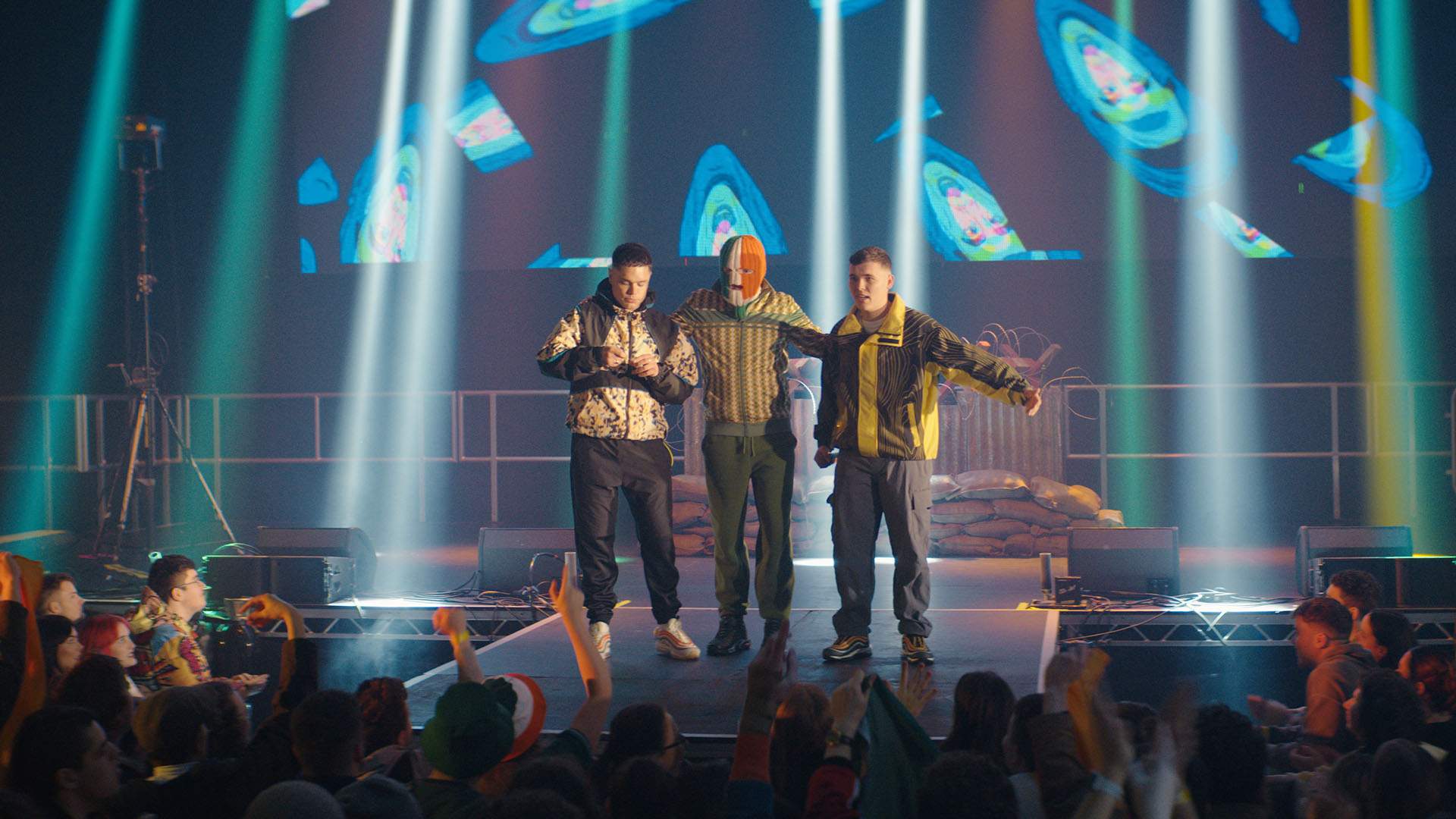
On How 2024 Has Panned Out Since the Film Premiered at Sundance — and with a New Kneecap Album Out, Too
Mo Chara: "We've been busy little boys. We've been very busy, but we're getting opportunities that not a lot of young people, especially where we're from, get. So we're enjoying it. We're loving it.
We've seen a lot of the world that we would probably not have seen, Iceland and all sorts of places. So we're enjoying it.
It's hard to balance the music and the movie at the same time, but we're giving it a good go."
Móglaí Bap: "Ying and yang."

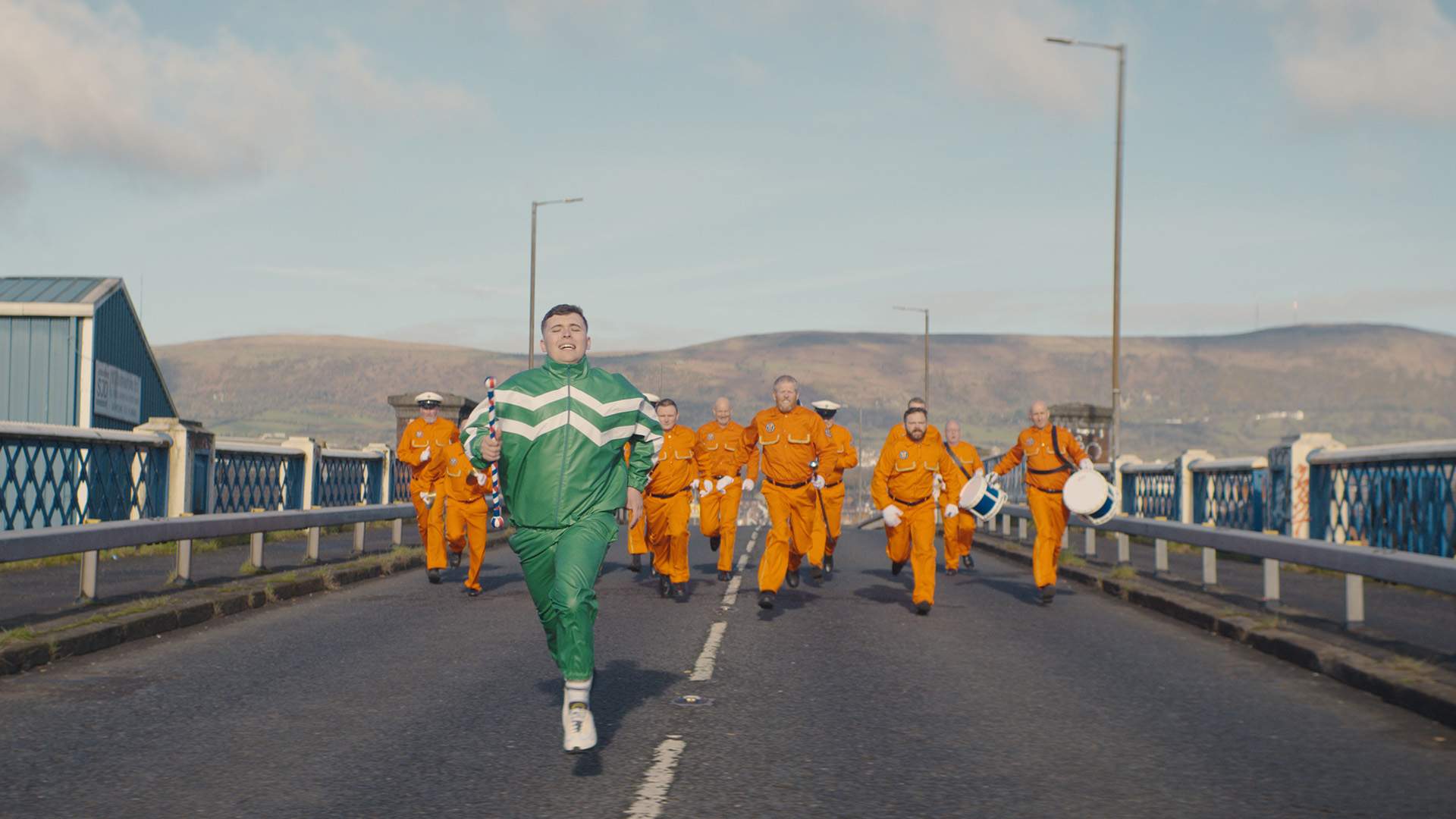
On the Response to the Film in Belfast, Even Before It Hit Cinemas
Mo Chara: "I feel like people in Belfast — well, most, the majority of people — are very proud of us, because Belfast is something that has always just been negative in world media. And it's seen as a place that's not very …"
Móglaí Bap: "Progressive."
Mo Chara: "… or fun or whatever it is, or that people do well or get creative in. So I feel like a lot of people, especially the older generation, they're all just very, very proud and they're very happy that there's two or three young people, or bands, coming up, or movies being made that show Belfast in not such a negative light all the time, even though there's negativity."
Móglaí Bap: "There's a little bit, just like with anywhere."

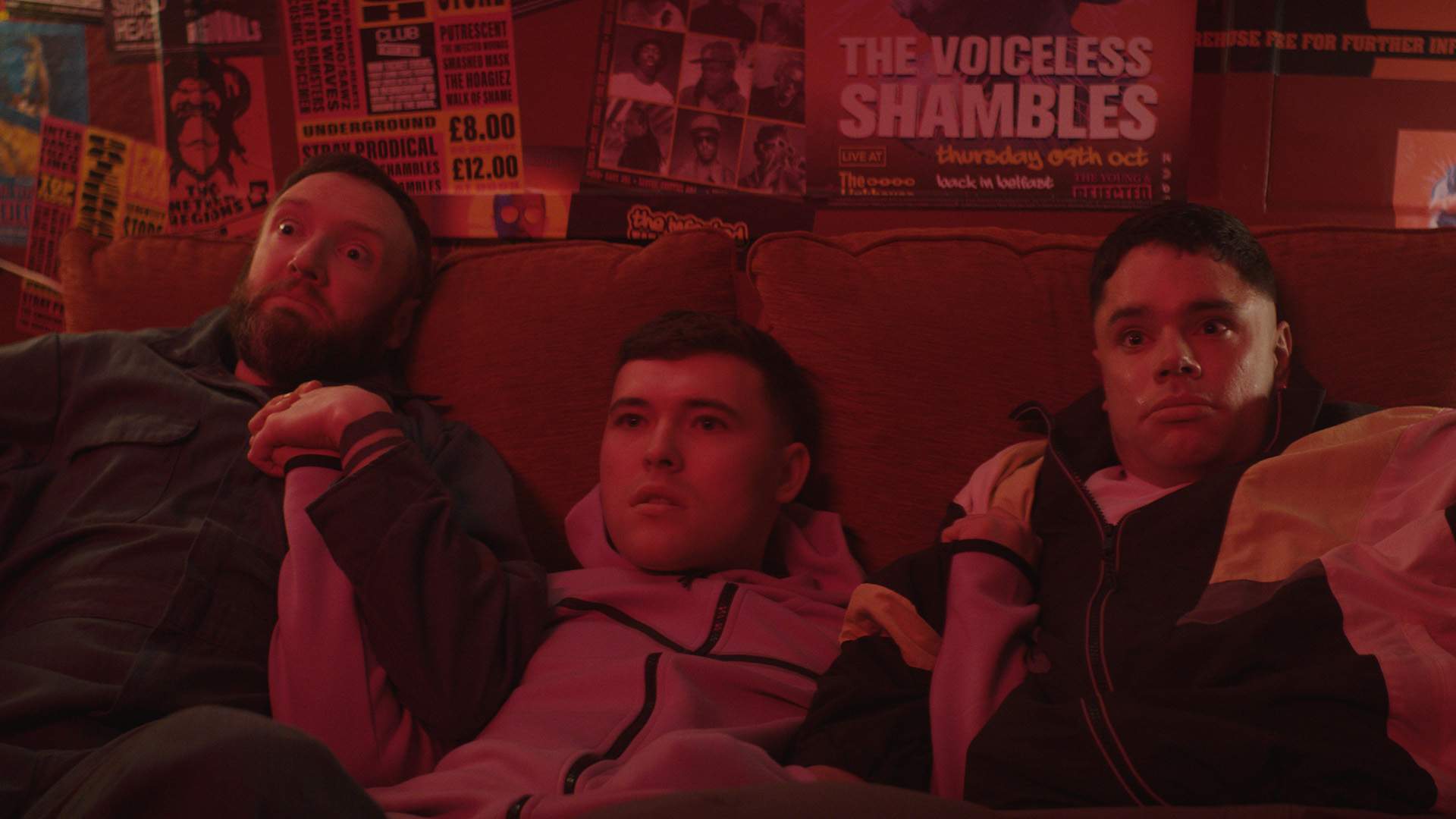
On Bringing Their Origin Story to the Screen, Riffing with Reality and Rich Peppiatt's 70-Percent True Claim
Móglaí Bap: "He made that up, surely."
Mo Chara: "70 percent — how the fuck does he judge that?
But the origin story of Kneecap, though – we're not getting into the blurred lines, but 100 percent, DJ Próvaí was a teacher. And we released the song, and the school started finding out that he was the man behind the mask and sacked him, basically. That's true."
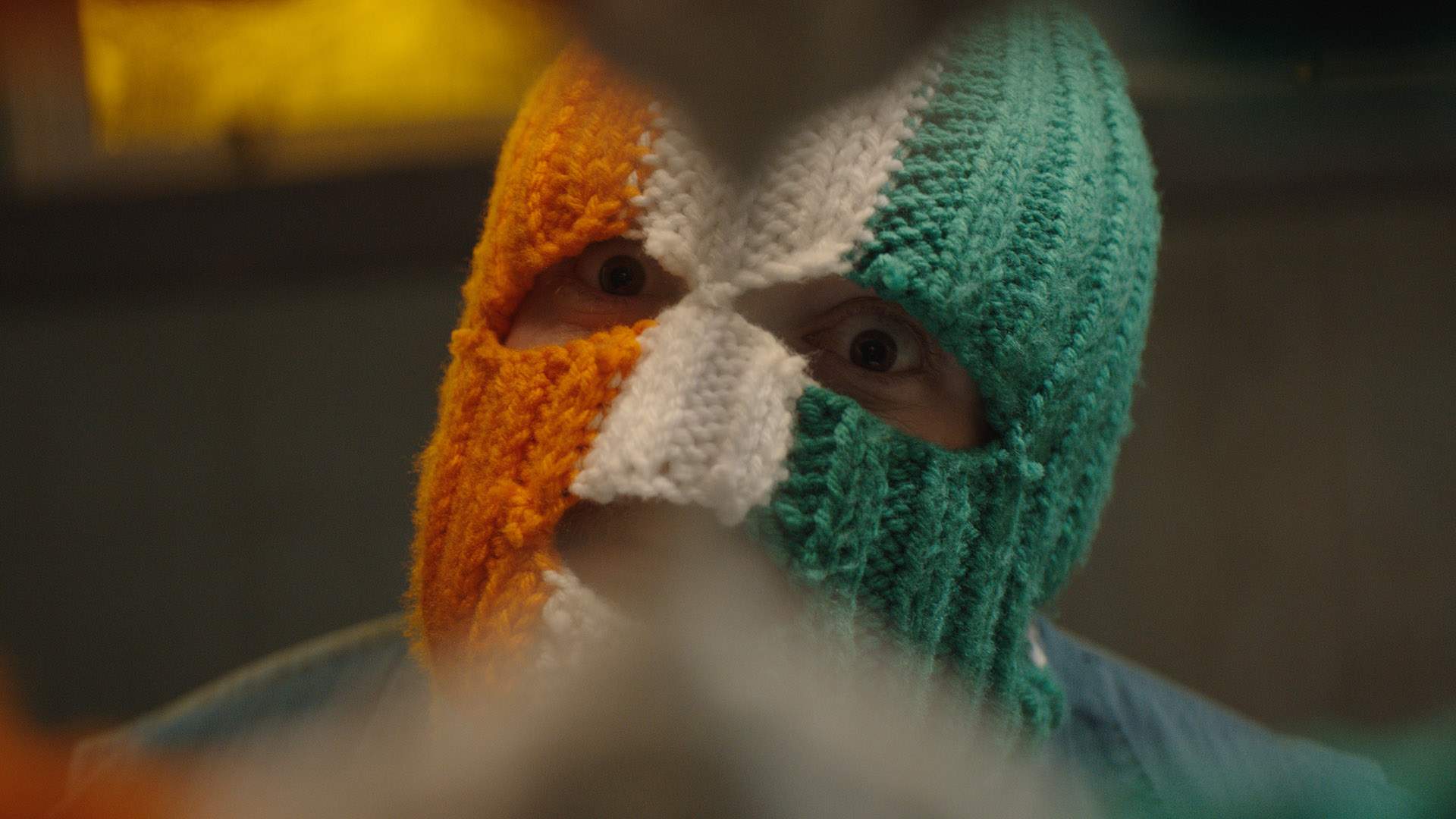
Móglaí Bap: "And the police meetings and the Irish language legislation, and all these things. Most of the crazier stories in the movie are true. The christening at the very start of the movie with the British Army helicopter is based on a true story, that's based on my christening.
I was christened on a mass rock. It was kind of like an altar made of stone hidden away in the forests when Catholicism was outlawed during the Penal Laws, and I got christened there in the 90s."
Mo Chara: "The first christening there for 200 years."
Móglaí Bap: "Yeah, the first mass there for 200 years. And the British Army thought there was some sort of IRA meeting going on."
Mo Chara: "Like a training camp for the paramilitaries."
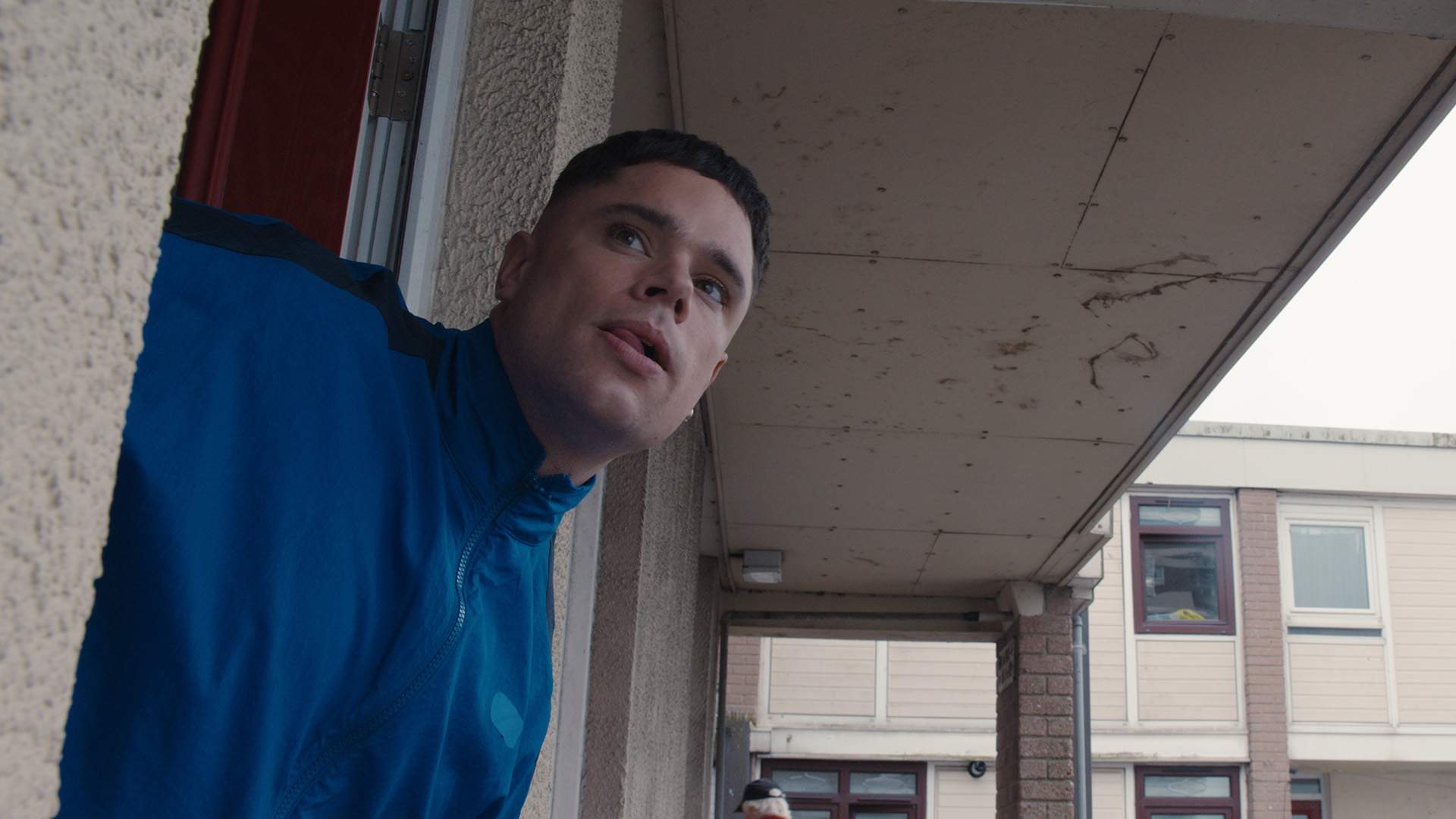
Móglaí Bap: "And then they hovered above the procession for the whole time as being as being squirted with water by priest."
Mo Chara: "I hope it was water."
Móglaí Bap: "I think it was water, anyway. And they hovered there above the whole time. There's a newspaper article about it. It was quite an iconic moment.
So like stories like that are based on truth, and we like to leave it there. But as Rich says, some of the crazier stories are based on truth."

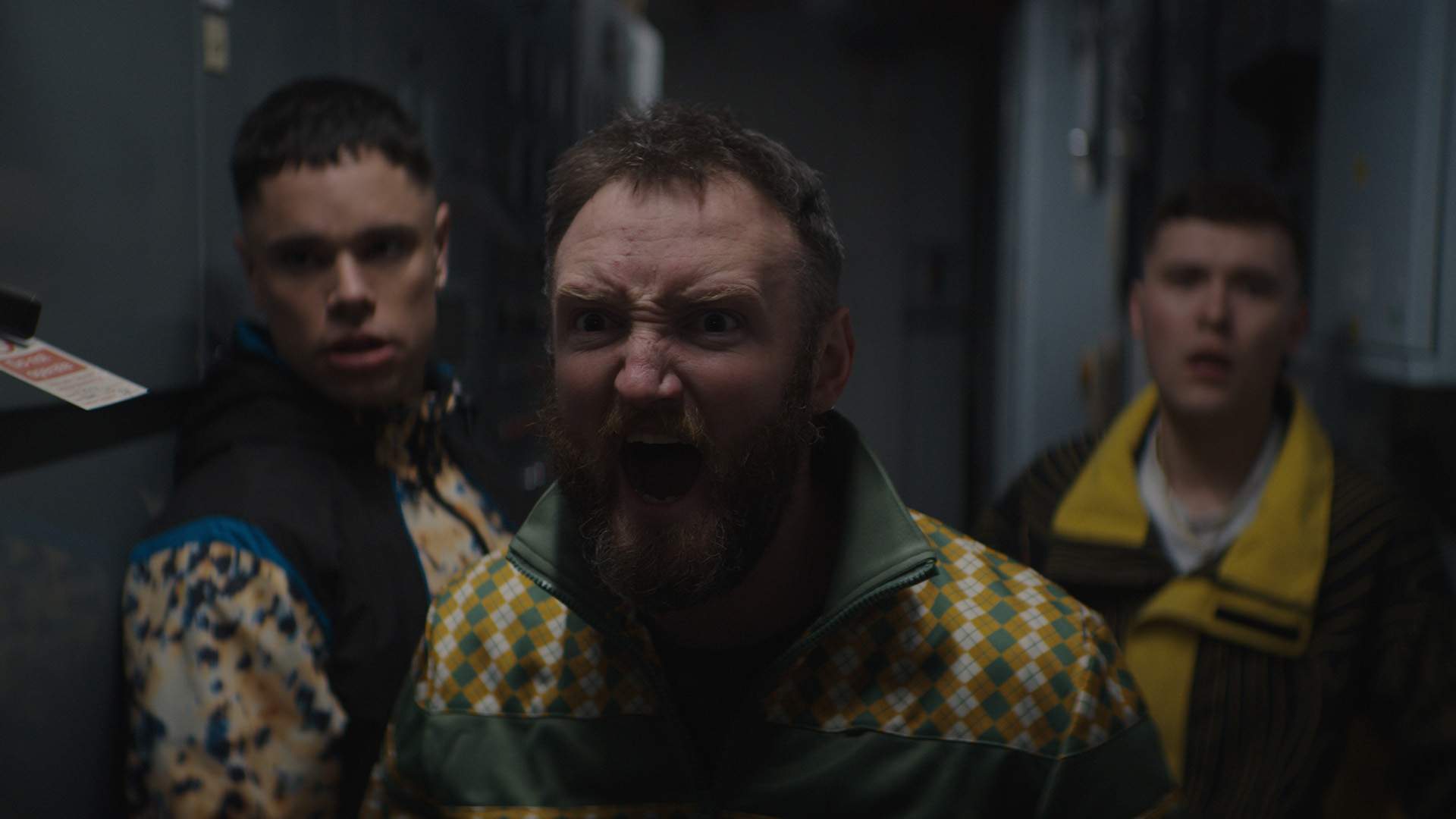
On Eventually Saying Yes to Rich Peppiatt's Persistent Efforts to Have a Drink with Kneecap — and How the Film Started From There
Móglaí Bap: "We were very skeptical, of course, because Rich is obviously from England."
Mo Chara: "Don't be so hard on him."
Móglaí Bap: "And we're very skeptical of English people who want to profit off Irish people. So we kept him at arm's length for a while. But eventually, his arm reached across with a pint and we accepted it.
It was from there that we got together very well. I think because Rich is from England is actually is his best quality. It sounds like a negative thing, but it was the best thing about him because he didn't come with any preconceived ideas of what we should represent or what culture we come from. He kind of left it to us to tell him.
And because of that, there was a great line of communication in the back and forth. If we didn't feel that some scenes represented our culture or the youth culture, he would listen to us in that way. So there was a great communication between us and Rich, and he was very open director."
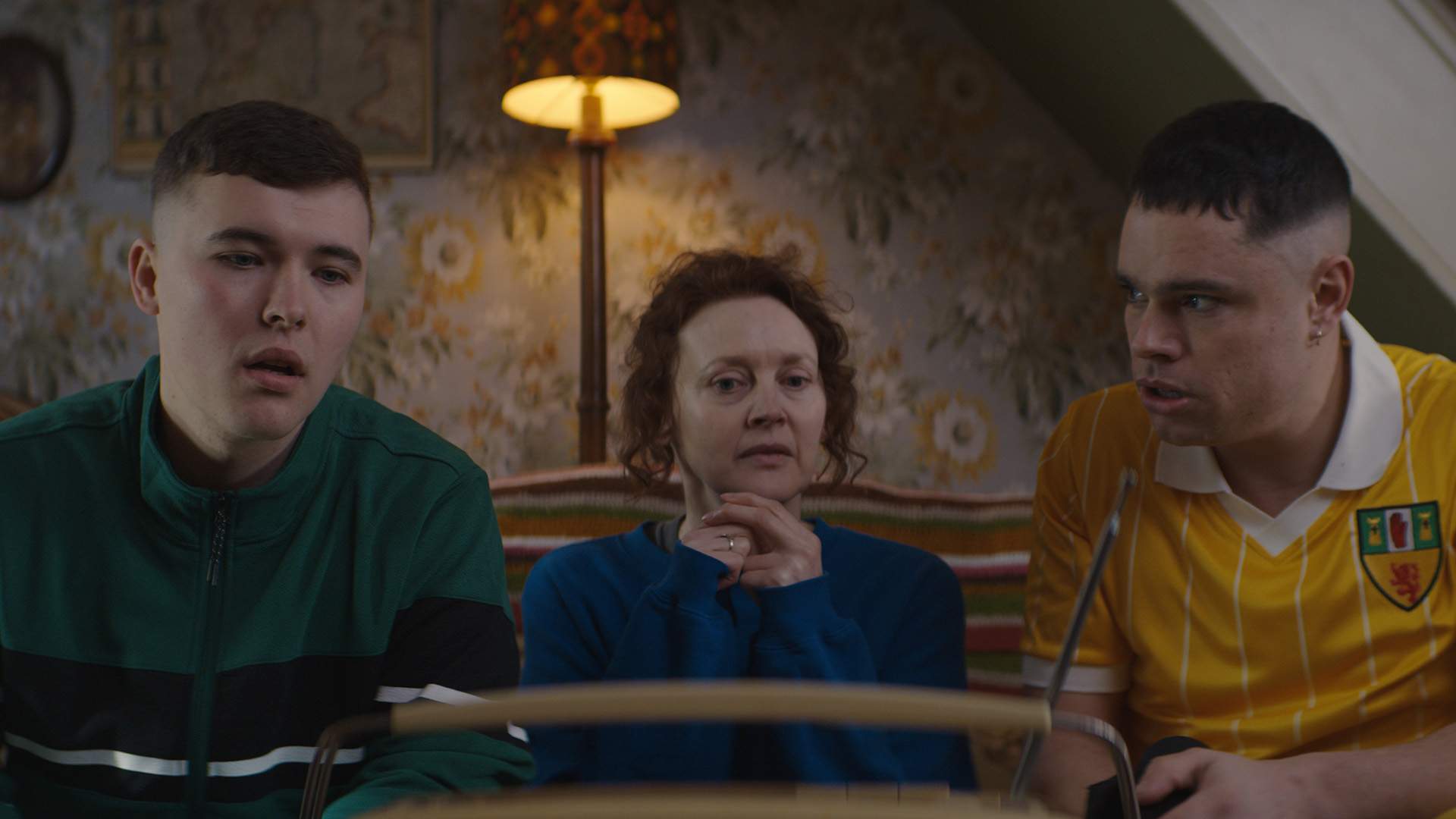
Mo Chara: "He's done a great job portraying Belfast."
Móglaí Bap: "Yeah, he did a great job of portraying Belfast — and portraying the modern era of Belfast and the youth in Belfast. So kudos to Rich."

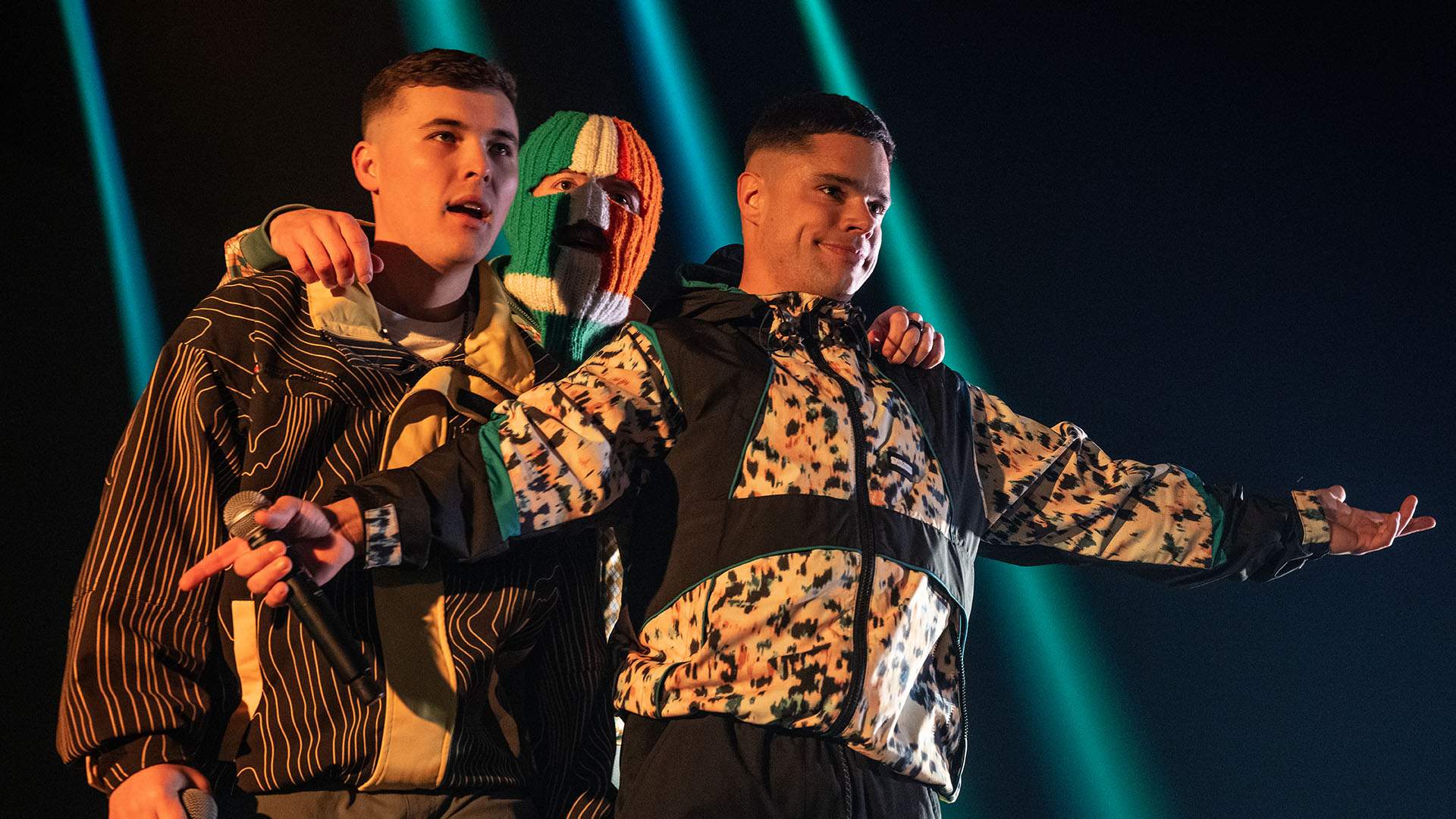
On Taking a Risk by Trusting Kneecap's Story to Any Filmmaker
Mo Chara: "The biggest risk of all was the fact that our music career was on the up, and we were doing very well — well, very well for where we were at that time — and the last thing that we would have needed, for example, was a really cheesy, shit movie to come out that was hard to watch and made people cringe. Nobody's going to be able to take a music career seriously after doing a really shit film, I feel.
So it was a risk we didn't need to take, but some risks are worth taking and we consider ourselves to be risk-takers. And we put a lot of trust in Rich — and I think Rich put a lot trust in us."
Móglaí Bap: "It paid off for him."

 On the Decision to Play Themselves — and Dream Casting Ideas If That Didn't Pan Out
On the Decision to Play Themselves — and Dream Casting Ideas If That Didn't Pan Out
Móglaí Bap: "I wanted to get Brad Pitt, but he was too old."
Mo Chara: "He was too old, too ugly."
Móglaí Bap: "And then Cillian Murphy, he was too small."
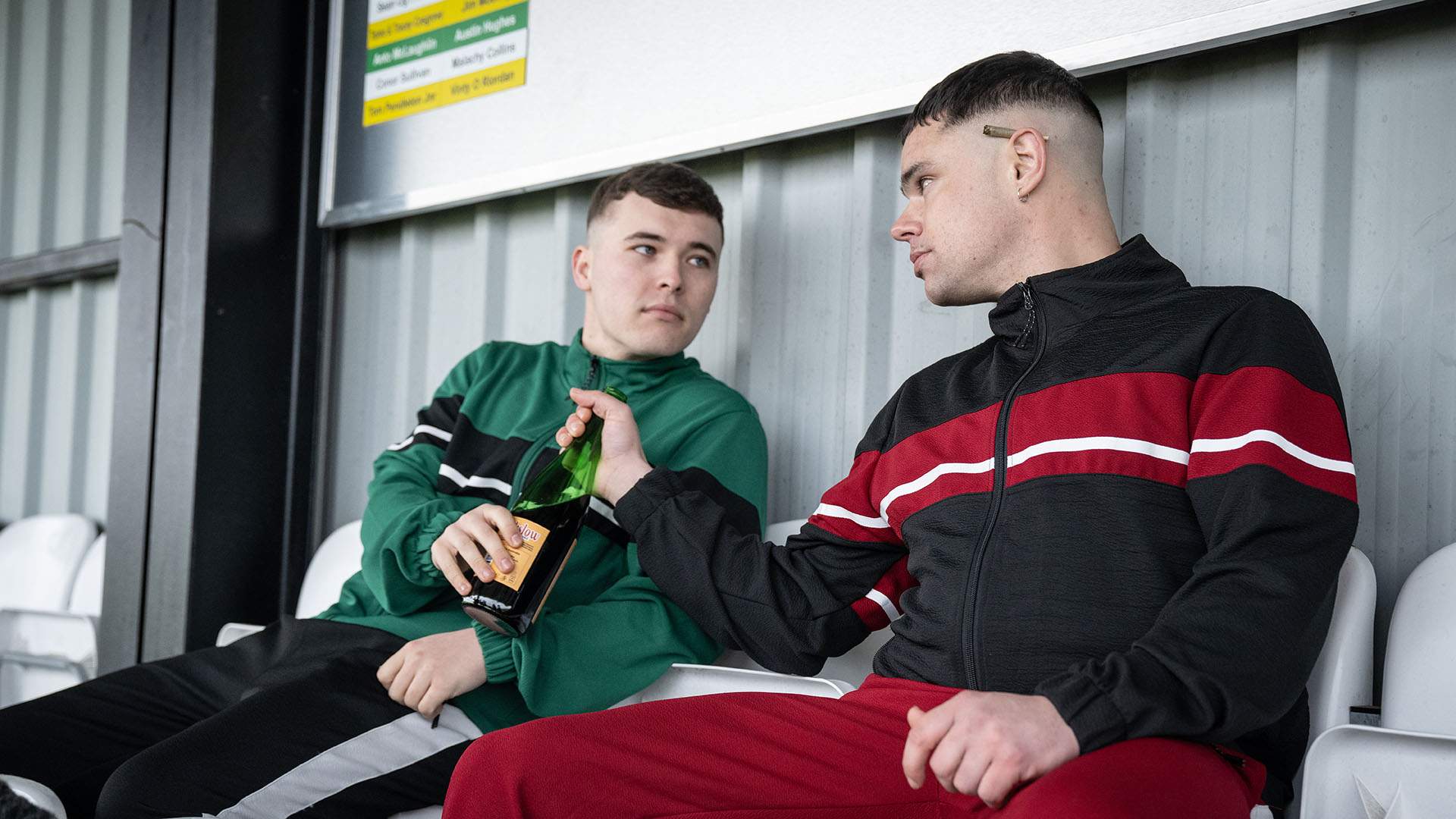
Mo Chara: "As we always say, they were the roles we were born to play. So we were glad it was us and we felt like we were the only ones who could probably do it justice.
It was funny, we got one of the reviews that said 'at the start I thought these actors were really good rappers. It actually just turns out that these rappers are really good actors'.
So we fooled a lot of people with. I'm glad we did it."
Móglaí Bap: "I think actually it still happens — during some of the film premieres, some people leave the movie still not knowing that we're an actual band and think that we're just a fake band that we created for the movie. So I think that's a good sign."

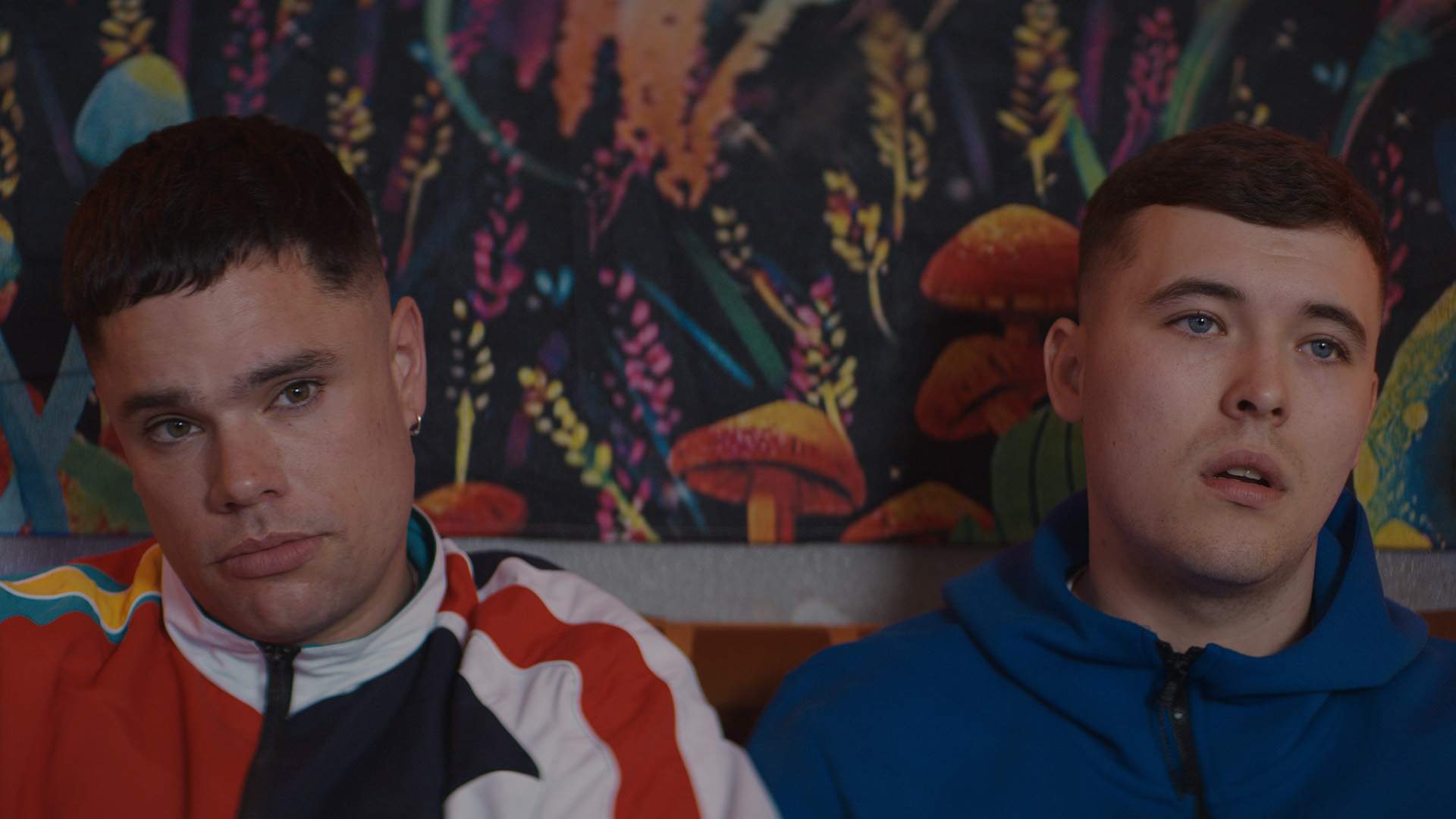
On the Kind of Preparation That Goes Into Playing Yourself in Your First Acting Roles
Mo Chara: "We got an unbelievable acting coach called Kieran Lagan. At the very start, it was a lot of warm-up games — and as Kieran would say, in acting, if you're in your head you're dead. You have to be present. You have to be in the room.
There was a lot of staring into each other's eyes for five minutes. I don't know if you'll ever be close enough to somebody to do that. It's very awkward. And you have to describe each other's face and stuff.
So there was a lot of really awkward games for us at the start. But by the end of this couple of months that we did, it became very therapeutic for us to go and do these sessions, and then we would leave and everybody would be in good form."
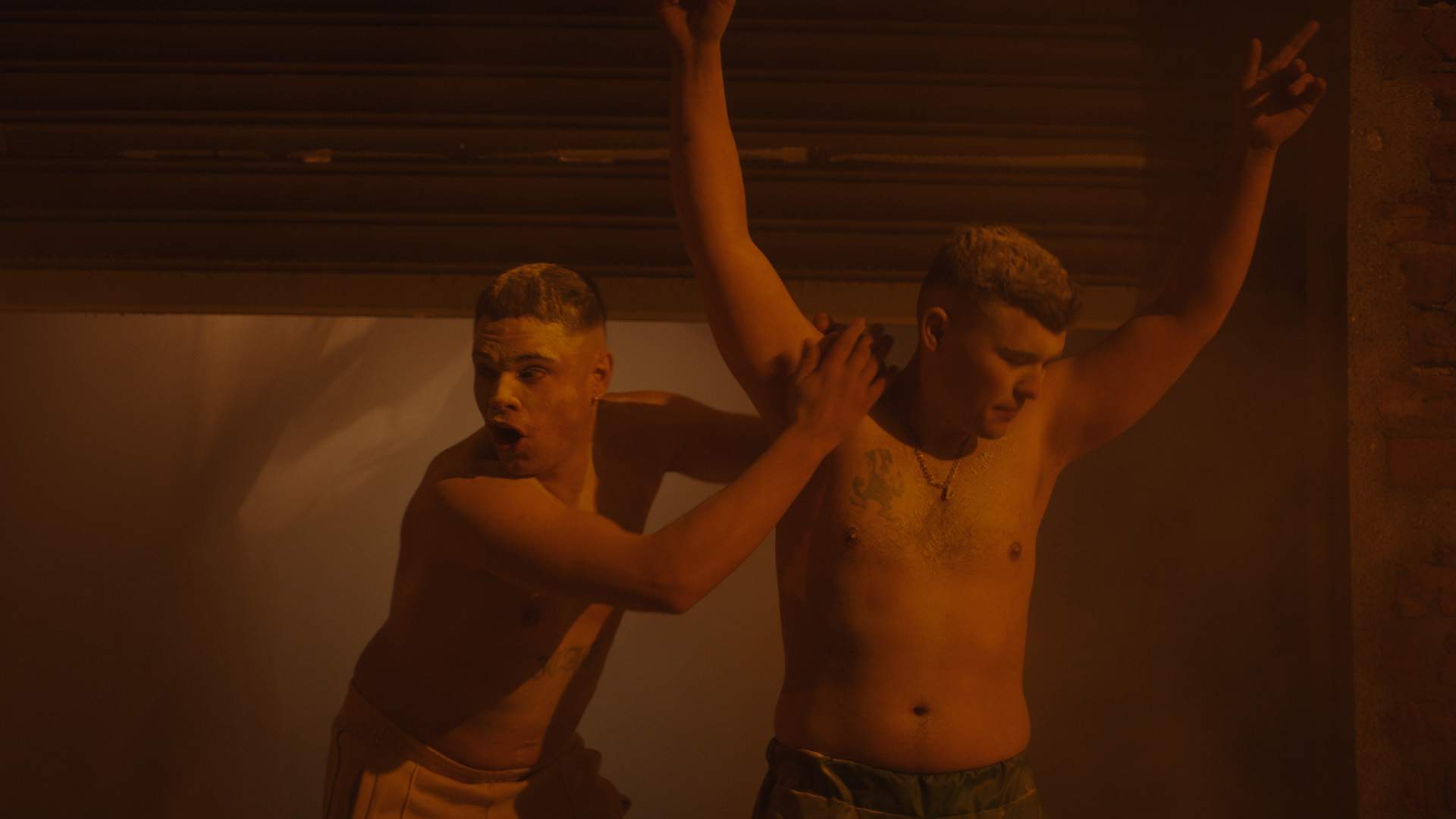
Móglaí Bap: "We all nearly fell in love, because apparently if you stare into someone's eyes for ten minutes, you fall in love. I don't know if that's true."
Mo Chara: "Speak for yourself."

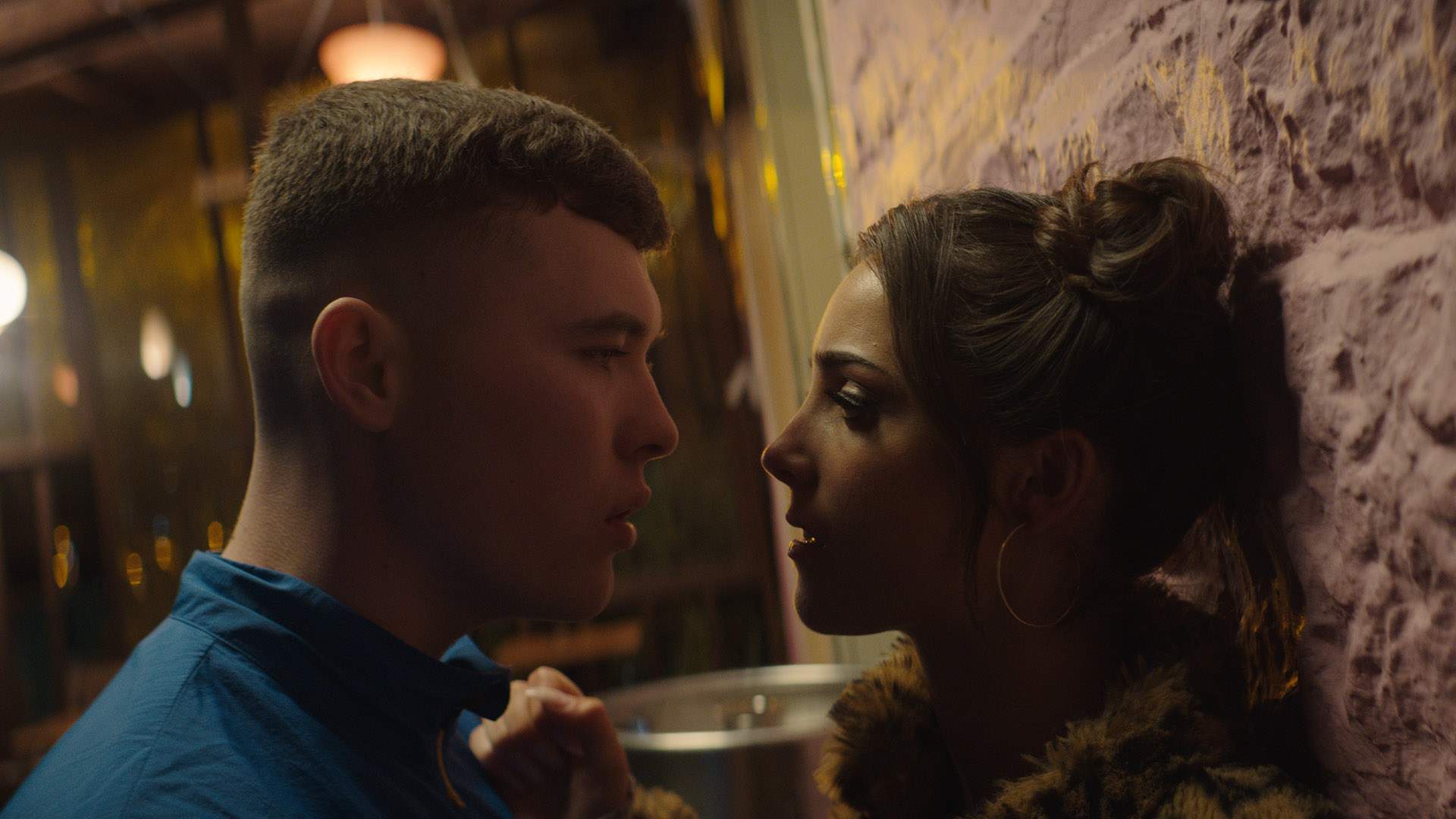
On Covering Kneecap's Lived Experiences, the Post-Troubles Reality in Northern Ireland, the Impact of the Police, the Campaign for the Irish Language to Be Recognised and More, All in One Film
Mo Chara: "We had the term 'kill your babies'. So we would have some great ideas, but it just wasn't going to work in the film. So stuff that we really liked, we had to just cut it. And that's always tough. But I suppose that's the game.
Even some scenes that were in it that have been cut that we really liked, because the the first draft was like two hours and 15 minutes. And so we went and had to cut loads of scenes. So that's always tricky.
But yeah, there's a big political sphere here that we wanted to represent, but we just couldn't get everything in because it's such a complex history here. But we got what we felt was important to the story and what was important for people to understand the contacts of the of politics here.
I think we got most of it across with the Irish Language Act, and the Unionist and Republican politicians."
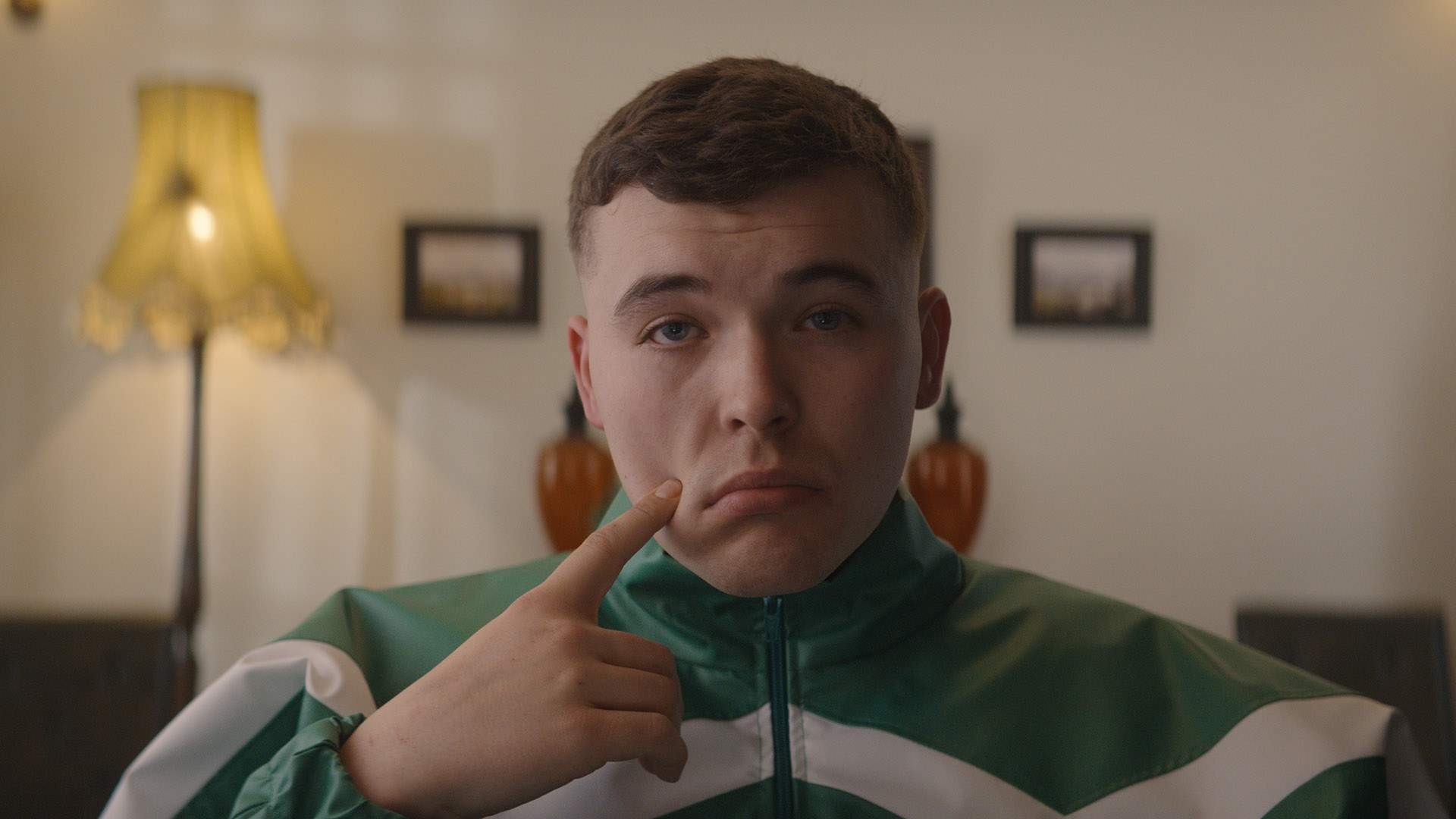
Móglaí Bap: "I think the core element of the movie, which we always came back to, is identity. Identity is so important, especially in post-colonial countries that do have Indigenous languages.
Language and identity are all intertwined, and I think that's something that resonates with people. We've seen in America or places where they speak minority languages, that what resonates with them mostly is identity.
And people I've met people who watch the film, they literally instantly either want to learn Irish or want to learn whatever their own Indigenous native language is. That's something that we're very proud of. That's the effect this movie is having."

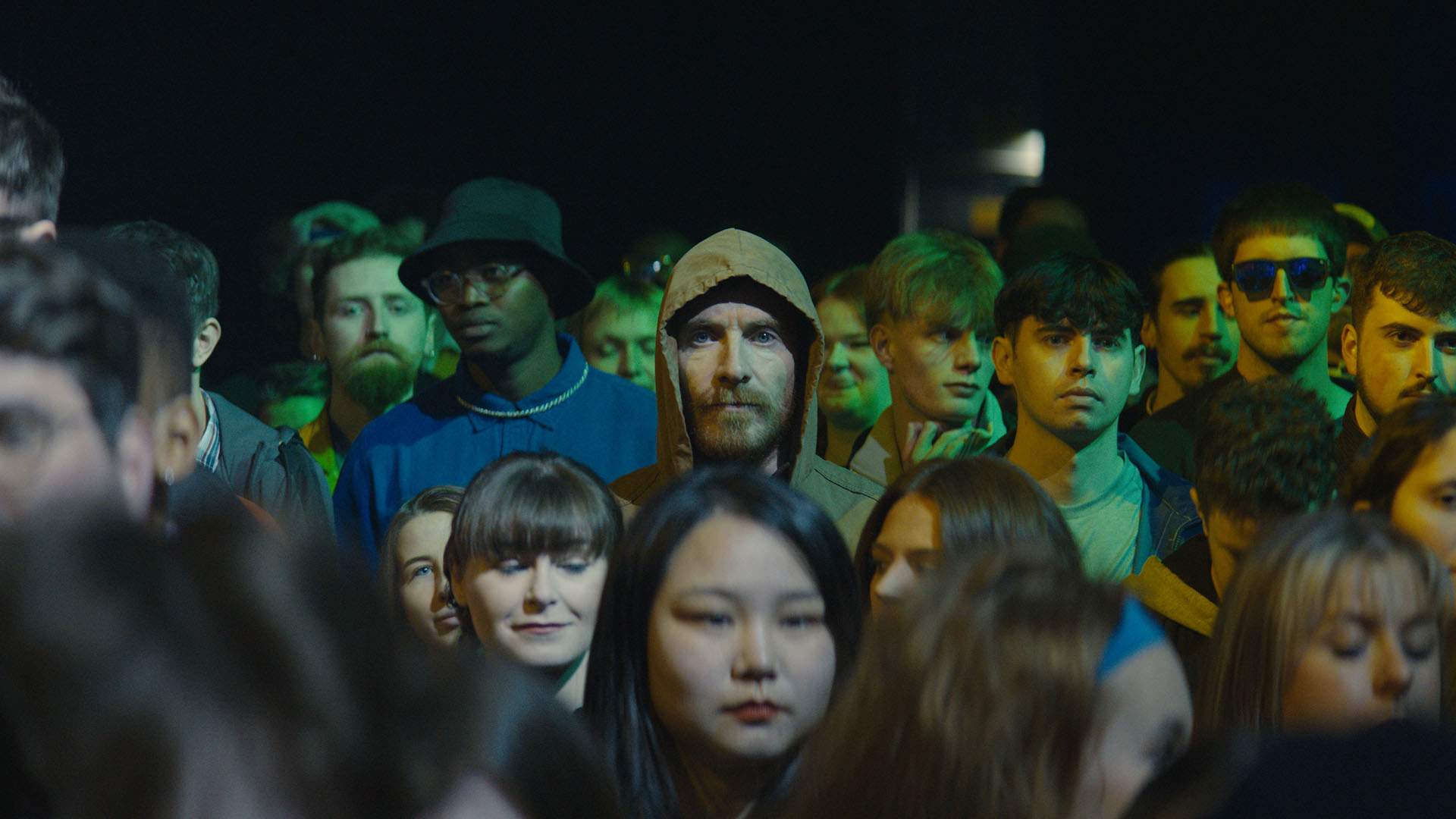
On Getting Michael Fassbender Onboard to Play Móglaí Bap's Father Dad
Mo Chara: "It made the difference."
Móglaí Bap: "He was completely starstruck when he met us."
Mo Chara: "We always say that, that he was completely starstruck — but he actually was a fan of Kneecap. And I feel like he really liked the script. So it was amazing to have him.
So we wrote the film. We were ready to go, basically, in a few months time, but COVID happened. So it put everything back a few years. But COVID actually in itself was a blessing, because it was after COVID or towards the end of COVID, that we got Fassbender involved. So COVID actually worked in our favour.
But it made all the difference. It gave the film legitimacy, whenever you have such a big star like that involved.
We already had Josie Walker [The Wonder, This Is Going to Hurt, Belfast] and Simone Kirby [The Buccaneers, Hidden Assets, His Dark Materials], who've done plenty of huge, huge roles as well. But Fassbender brought this new legitimacy to it. And also it meant anyone who was on set the day of Fassbender, everybody upped their game. Everybody wore their best clothes. The catering was better. Everyone acted better."
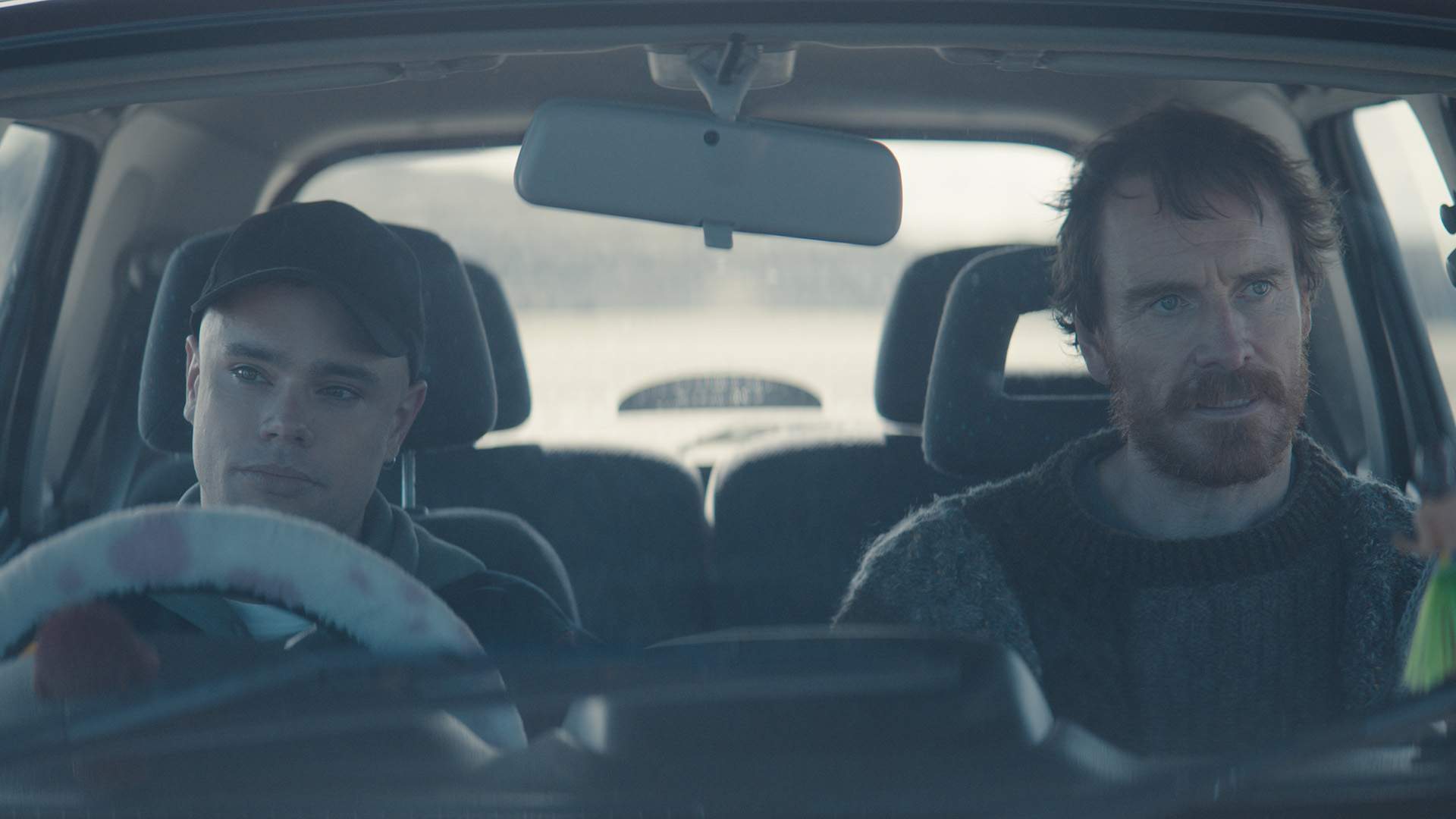
Móglaí Bap: "We got real plates."
Mo Chara: "We got real plates and cutlery."
Móglaí Bap: "We got real forks and knives, instead of all the paper ones we were using."
Mo Chara: "So it really just upped everyone's game, having him involved, and it it just pushed everyone just to strive to be better."

Kneecap opened in cinemas Down Under on Thursday, August 29, 2024.
Images: Madman / Sony Pictures Classics.
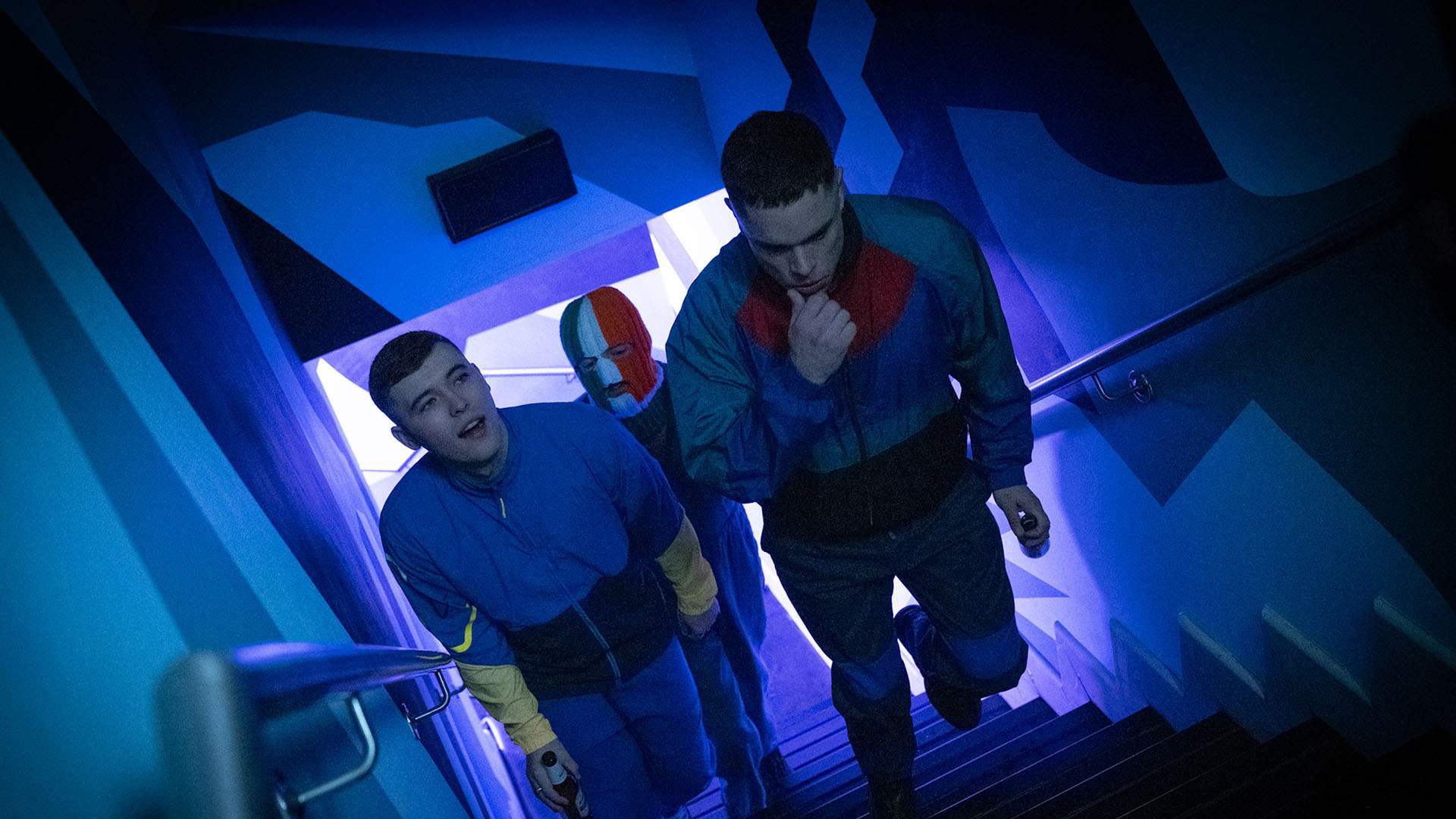
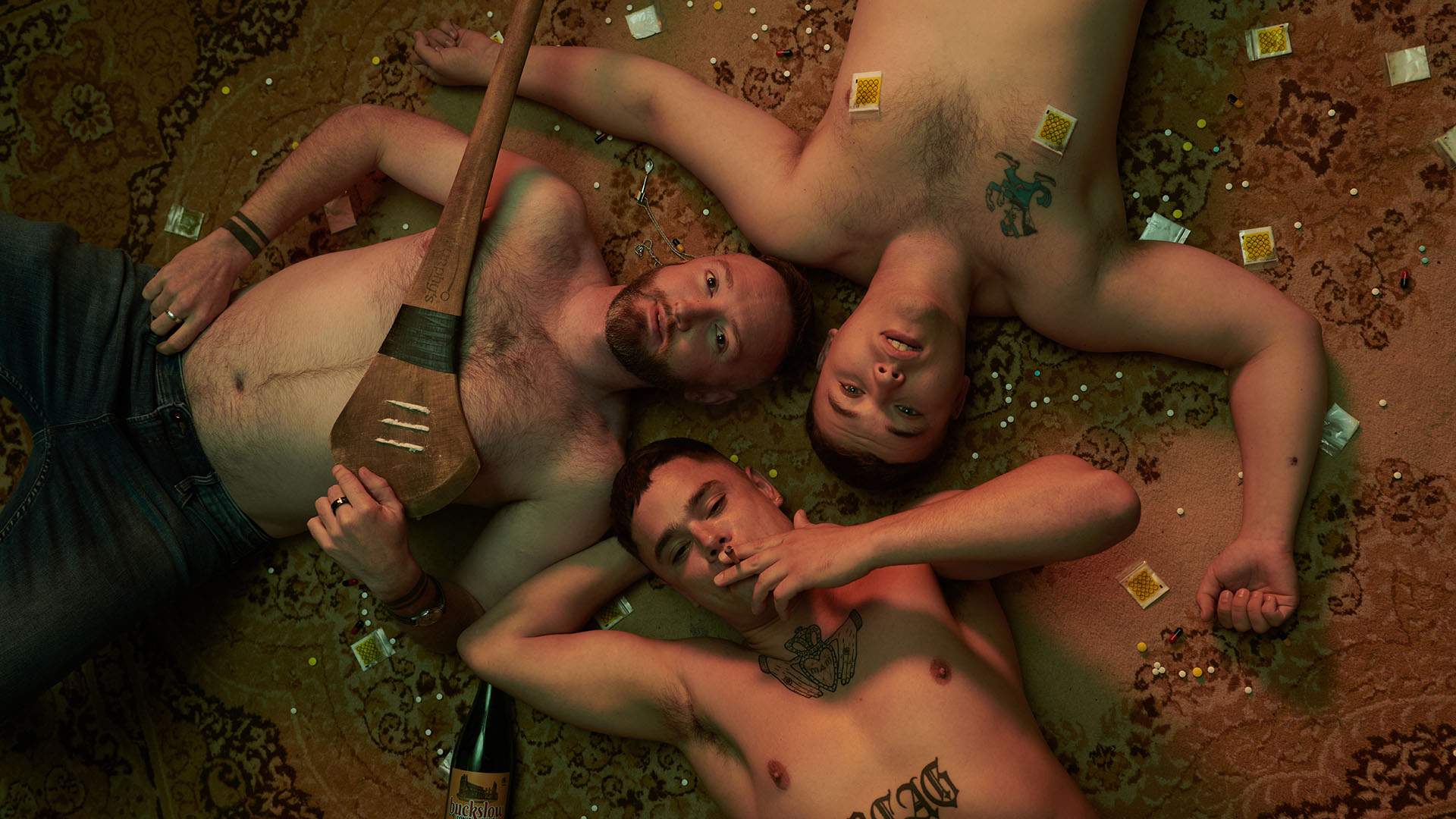 On the Decision to Play Themselves — and Dream Casting Ideas If That Didn't Pan Out
On the Decision to Play Themselves — and Dream Casting Ideas If That Didn't Pan Out



